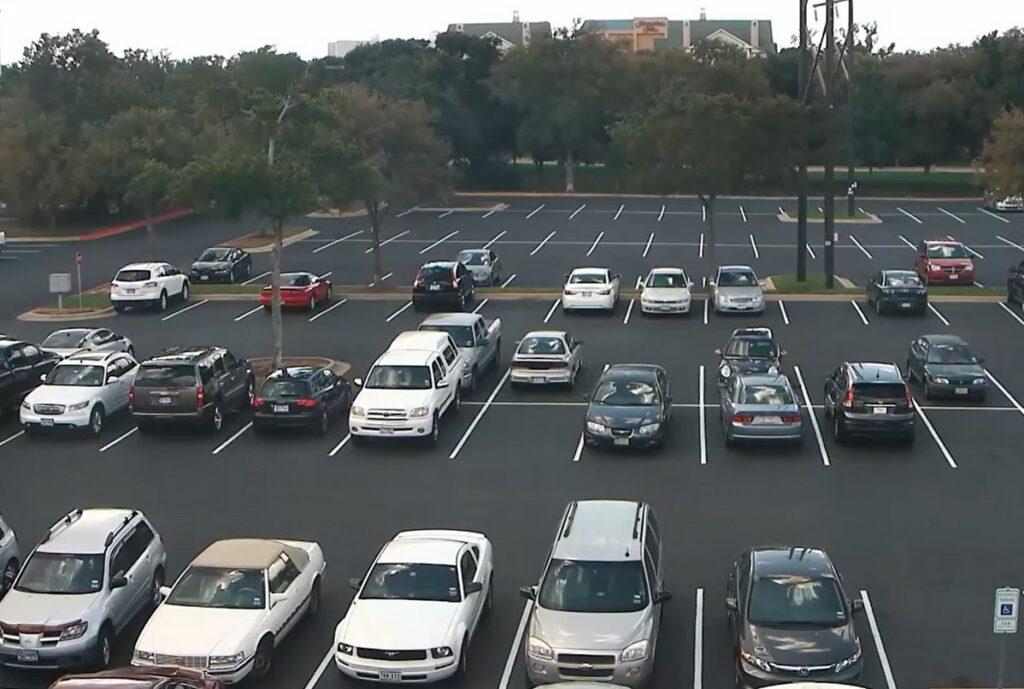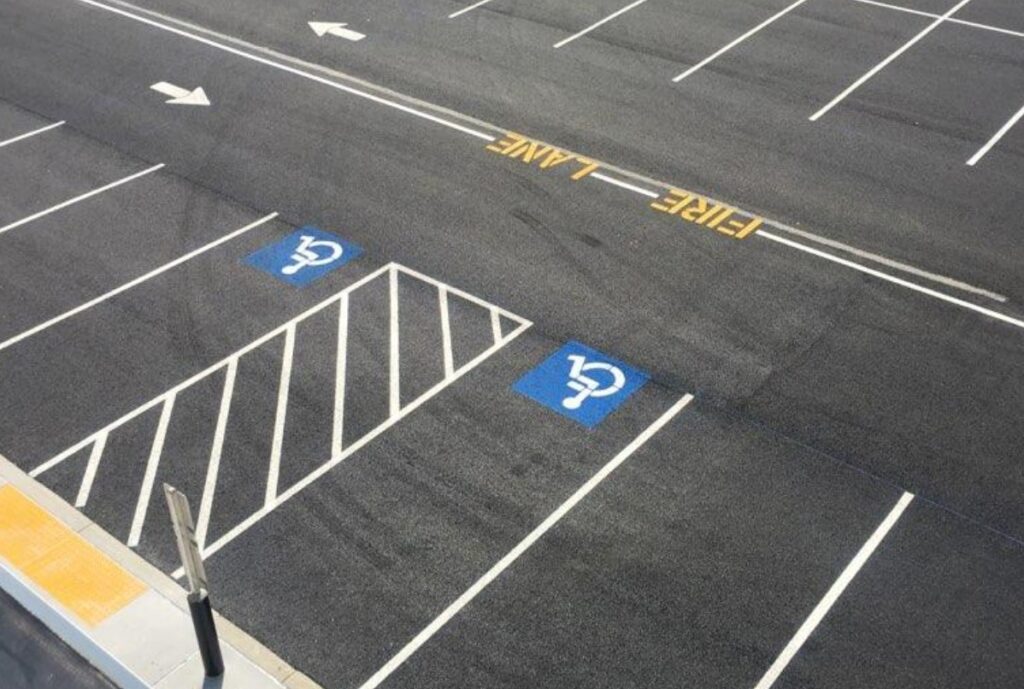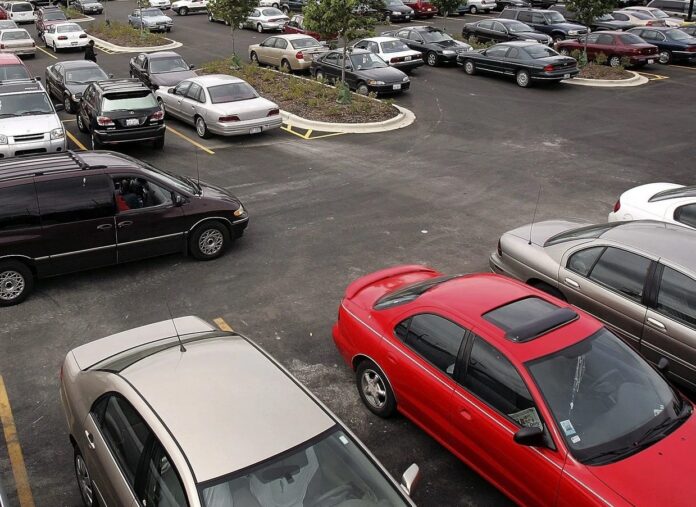Parking businesses are unique opportunities for entrepreneurs to earn excellent profits, improve customer experiences, and access innovative technology.
Understand the business of parking lots by looking at the industry’s history, future, and operations.
What are Parking Businesses?
This refers to established structures for parking cars, generally located in areas containing limited street parking and ample automobile traffic. These businesses provide parking spaces for numerous industries, including residential, industrial, commercial, healthcare, hospitality, university, entertainment, and much more.
It provides two primary economic opportunities: Owning and managing. Owning and operating a parking business involves supplying funding, performing maintenance, and determining overall structure. Managing it requires handling the day-to-day operations on behalf of the owner, specifically implementing technology, offering guest services, and improving efficiency.

Types
Different types of parking structures are available for business owners depending on your business’s needs regarding size, funds, and purpose. Two types of primary structures exist: Parking lots and garages.
Surface parking lots are outdoor structures consisting of a large space. They are created using gravel, asphalt, or concrete. Surface parking lots are available in numerous sizes depending on the number of spaces for cars required.
Parking garages are spacious structures built both above ground and underground. They are typically built using concrete and precast materials. On average,it contains five levels; however, they can be several levels higher or lower to meet your spacing needs.
A Brief History of Parking Businesses
Before the 1920s, regulated parking didn’t exist. Parking spaces were unavailable and inaccessible, resulting in people to park their cars wherever. Due to the lack of control, serious traffic congestion plagued major cities.
Parking meters were the first step towards solving these issues. In 1933, Holger George Thuessen and Gerald A. Hale began designing a parking meter. By 1935, the first one was installed in Oklahoma City. Immediately, business owners and customers noticed the improvement positively impacting traffic flow and congestion.
Garages were the next shift towards solving these issues. Because more people owned cars, larger cities needed solutions to park as many cars as possible in little spaces. Garages initially blended in, meaning you couldn’t tell buildings for storing cars apart from regular buildings.
Gradually, parking solutions transformed using advanced technology and construction designs to create current examples of parking businesses.

The Future of Parking Businesses
These types of businesses are rapidly progressing towards an enhanced future promoting innovation and technology.
They are searching for innovative technology to boost efficiency and improve customer experiences. Smartphones, smart cars, and accessible apps allow parking businesses to provide contactless and simplified services for users. Additionally, a shift towards demand-based pricing means technology is used to direct drivers to the right space for the right price.
Parking businesses are also experiencing a focus on mobility solutions. As more people and businesses desire to decrease their carbon footprint, mobility solutions offer alternative transportation options to elevate the commuter experience, including carpool programs, valet services, rental opportunities, and much more.
Unfortunately, Covid-19 impacted these businesses by decreasing the number of regular commuters and eliminating the potential for greener practices, such as carpooling. The overall influence of Covid-19 on it remains unclear, but understanding the potential changes is necessary for estimating the future of the industry.
Starting a Parking Business
Starting a parking business involves numerous considerations and steps, specifically understanding the costs involved and completing the legal requirements.

Costs Involved
Building costs for this type of business depend on the location, size, and type of structure you intend to build. An average surface parking lot costs $10,000 to build whereas an average multi-level garage costs about $9,750,000, ranging anywhere between $7,500,000 and $12,000,000.
Beyond the building costs, ongoing expenses occur for these businesses. Ongoing expenses include rent or mortgage payments, employee wages, utilities, insurance, and supplies, costing approximately $5,000 every year. Additionally, maintenance fees are involved for repainting lines, replacing signs, and repairing concrete, costing yearly about $500 per space to park.
Legal Requirements
Opening a parking business involves completing legal requirements, including:
- Fulfilling Tax Obligations: Register for state and federal taxes and record your business’s expenses and income to simplify your annual tax filing
- Establishing a Legal Entity: Evaluate the different business structures, specifically LLCs and corporations, to establish a legal business entity and protect yourself from personal liability and lawsuits
- Obtaining Permits and Licenses: Required permits and licenses vary based on state and local laws; however, a certificate of occupancy is typically required to prove your business meets building codes, zoning laws, and government regulations
- Purchasing Sufficient Insurance: Different types of business insurance are available to protect your business from property damage or personal injury, especially general liability insurance and workers’ compensation coverage
Fulfilling the legal requirements and obligations is essential for protecting this business.

Operating a Successful Parking Business
Guarantee your business succeeds by following beneficial tips for operating a parking business.
Price Competitively
Choose competitive prices to improve your business. Numerous factors impact your prices, including location, competition, building costs, and ongoing expenses.
Begin by selecting a price based on your location. For example, an hourly rate for parking may be $1 in rural areas whereas metropolitan locations can charge $15 for only fifteen parking minutes. After recognizing the average prices, choose a price to challenge your competitors, cover regular expenses, and earn a substantial profit.
Focus on Customer Experience
Focus on providing excellent customer experiences to develop a successful parking business. Choose good, dependable staff to offer quality customer service and serve as the primary impression of your business.
Alternatively, outsource your parking management services to significantly improve customer experiences. Management services use trained professionals and advanced technology to enhance customer experiences. For example, Pro Park possesses over 35 years of experience in serving guests and creating professional parking experiences.

Market Your Business
Market your parking business to encourage growth and increase profits. Promotional efforts for parking businesses include developing a logo, building a website, distributing coupons, establishing reward programs, posting advertisements, and much more. Discover the best methods for marketing it to effectively reach your target audience.
Parking businesses are profitable operations serving to solve problems and incorporate beneficial innovation.
Evaluate the history, future, and business of parking lots to understand whether they’re the perfect opportunity for you.









